A Life: Fran Hanchett ‘wanted more information’
|
Published: 02-10-2024 10:37 PM
Modified: 02-14-2024 5:33 PM |
LEBANON — Whenever Frances “Fran” Hanchett walked through cemeteries, she’d keep an eye out for neglected stones.
“She had a little kit in the back of her trunk all the time,” Hanchett’s daughter, Lisa Wentworth, said in a phone interview. Hanchett would return to her car and fetch her cleaning supplies. If she came across a marker that had fallen over and she couldn’t right it herself, she’d reach out to family members or friends to ask them to help her.
That level of care was characteristic of Hanchett, a longtime Lebanon resident who in retirement dedicated her time to cataloging cemeteries and making sure Civil War veterans buried in the area got their due. Hanchett died at 77 on Oct. 26, 2023, due to lung cancer. Among her many roles were serving as the first female historian for the City of Lebanon and president of the Lebanon Historical Society.
“She didn't talk about her own achievements,” Nicole Ford Burley, who succeeded Hanchett as city historian, said in a phone interview. “She’d talk about her projects.”
And there were many: She organized an Adopt a Civil War Veteran program to raise money so that every Civil War veteran buried in a Lebanon cemetery could get a marker honoring his service. She mapped the city’s cemeteries — pulling together information that employees still rely on today. She was a fierce protector of the city’s heritage and had no qualms about speaking her mind about how leaders approached historic buildings, including the old Westboro yard ticket depot building in West Lebanon and the Carter Country Club in Lebanon.
“She was really engaged and had strong opinions about a whole variety of things, especially anything related to cemeteries and history,” Ford Burley said.
Hanchett’s true work began when she returned to Lebanon in 2009, after spending around 15 years in Florida. In a May 2012 interview with the Valley News, she described how she took it upon herself to document old cemeteries in Lebanon, West Lebanon, Etna and Hanover.
“I did it on my own. I called it my healing project, going through a rough divorce,” Hanchett said in the interview. “You go to the cemetery. It’s very peaceful. It’s very quiet. There’s no one to bother you.”
Article continues after...
Yesterday's Most Read Articles
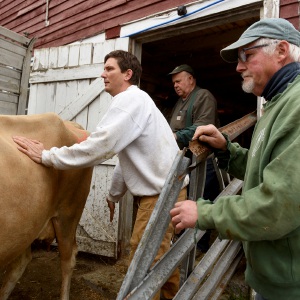 Herd departs Hartford’s last remaining dairy farm
Herd departs Hartford’s last remaining dairy farm
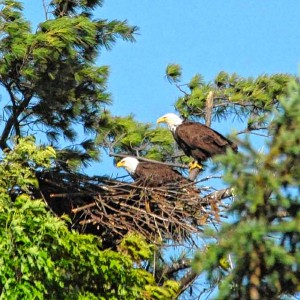 Bald eagles are back, but great blue herons paid the price
Bald eagles are back, but great blue herons paid the price
 At Dartmouth, hundreds protest ongoing war in Gaza and express support for academic freedom
At Dartmouth, hundreds protest ongoing war in Gaza and express support for academic freedom
 Kenyon: What makes Dartmouth different?
Kenyon: What makes Dartmouth different?
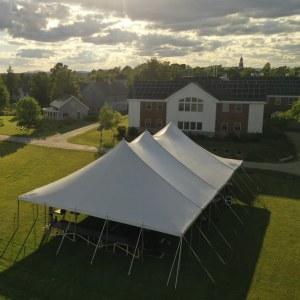 Big drop in tuition and aid is boosting Colby-Sawyer
Big drop in tuition and aid is boosting Colby-Sawyer
She took notes and photographs, uploading her research to Find a Grave, a website that assists people with genealogy research.
“She had done all that research to know who was where so we relied on her data and still rely on her data when families call for genealogy and stuff like that,” said Patrick McCarthy, maintenance manager for the city of Lebanon, said in a phone interview. He estimated that she had documented thousands of graves.
McCarthy met Hanchett when he was working at Ricker Funeral Home where he started to assist her with another of her projects — Adopt a Civil War Veteran, which also included Revolutionary War veterans. During Hanchett’s cemetery walks, she noticed how many veterans from the country’s earliest wars did not have grave markers recognizing their service. Many of their stones were in disrepair or were barely marked at all, although Hanchett had a knack for using old records to plot out where they were located.
“Some of the ones Fran discovered just had a piece of pipe driven into the ground,” Plainfield resident Gary Ward said in a phone interview. “Sometimes they didn't even have any type of marker at all.”
That didn’t sit well with Hanchett, who met Ward through her work as a board member of the Soldiers Memorial Building in Lebanon. Working with Ward, the secretary of the McKinley Camp branch of the Sons of Union Veterans of the Civil War, Hanchett reached out to the soldiers’ descendants and area businesses and organizations to ask them to contribute money for the markers. She’d then work with Ricker’s staff to order and install the markers, which ranged in price from $300 to $700, McCarthy said.
“She had found almost 100 veterans within the cemeteries of Lebanon that didn't have recognition,” he said.
By the time of her death, Hanchett had made sure around 85 of those veterans received markers. Now the Lebanon Historical Society is continuing her work.
“(She) did a lot of hard work over a long time to make sure Civil War veterans were recognized and that their graves were being cared for and their memories were being honored,” Ward said. She also made sure come Memorial Day that all of them had flags placed at their graves. “It was a labor of love to her.”
Those who knew Hanchett were always impressed with her tenacity and her ability to get things done. She never stopped looking to improve her education. After graduating from Lebanon High School in 1964, she attended beauty school in Maine before working for a short time as a hairdresser, Wentworth said. Hanchett worked part time as a secretary for a Decato and Cirone Law Office while raising her two children, Wentworth and David Dupuis. She later did similar work in the philosophy and religion department at Dartmouth College before moving to Florida.
Once she returned to Lebanon, Hanchett worked part-time as a crossing guard for the Lebanon School District, which gave her a little extra spending money — and plenty of time to pursue her research.
“One thing I really admired was how … committed she was to learning about history and basically teaching herself,” Ford Burley said. “She didn’t have a history background, she didn't have any formal training in how to do research, but she was a really excellent researcher.”
Hanchett viewed her roles as city historian and president of the historical society to not only preserve Lebanon’s history, but to make sure people were engaged with it. During the early days of the COVID-19 pandemic, she took photographs of different houses on Lebanon’s Bank Street and posted them to Facebook along with descriptions.
“Everyone would come on and share their memories, what they knew about the house,” Ford Burley said. It was “really remarkable” how Hanchett was able to foster connections during the pandemic.
One of Hanchett’s favorite projects was a biography titled “Thomas W. Penick: Lebanon’s Black Civil War Veteran,” which is published on the Lebanon Historical Society’s website. Hanchett had found Penick’s grave site during her cemetery research and wanted to learn more about his life.
“No one knew about Thomas Penick and she did an immense amount of research into not only his life in Lebanon, but his military service and pieced together this incredible biography,” Ford Burley said. “She was really committed to doing new research and learning new information.”
When Hanchett decided to step down from her role as city historian in 2021, she called Ford Burley and told her to apply for the position. While Ford Burley had aspirations to be city historian, she thought it was at least a decade in the future.
“It didn't occur to me that I could follow in her footsteps,” she said. Hanchett had other ideas. “I had a lot of faith in her opinion. I knew she wouldn't say something just to be nice. That wasn't in her nature.”
When Ford Burley published her own book about Lebanon history last fall, it included the dedication “For Fran, without whom this book would not exist.”
Hanchett also made sure that the Lebanon Historical Society would be taken care of. When she stepped back from her role as president in 2021, she tapped Phil Edson to continue her work.
“I couldn’t say no to her,” Edson said. “I felt honored she wanted me to take her place.”
The two met in 2019, after Hanchett noticed photographs Edson was posting to the Lebanon Alumni Association’s Facebook page and suggested he join the historical society. A few days after they connected, Hanchett wrote Edson again to inform him that they were distant cousins.
“Once we got to know each other, we became really good friends,” Edson said during an interview at the Carter House, home of the Lebanon Historical Society. He would often accompany her during walks in the city’s cemeteries where she shared stories of the occupants buried there. “I wish I had a tape recorder because she had so much to give with information.”
In the last months of her life, Hanchett had connected with another distant relative and Edson helped arrange two meetings between them.
“Before she passed, she wanted to meet her new relative,” Edson said. “To the day she died, she wanted more information.”
Liz Sauchelli can be reached at esauchelli@vnews.com or 603-727-3221.

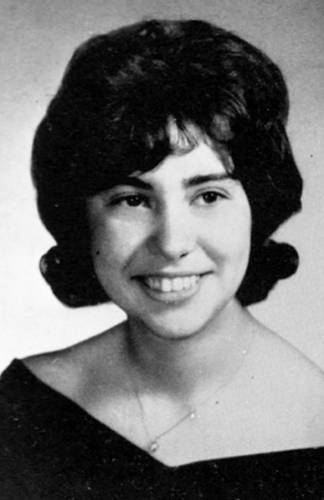
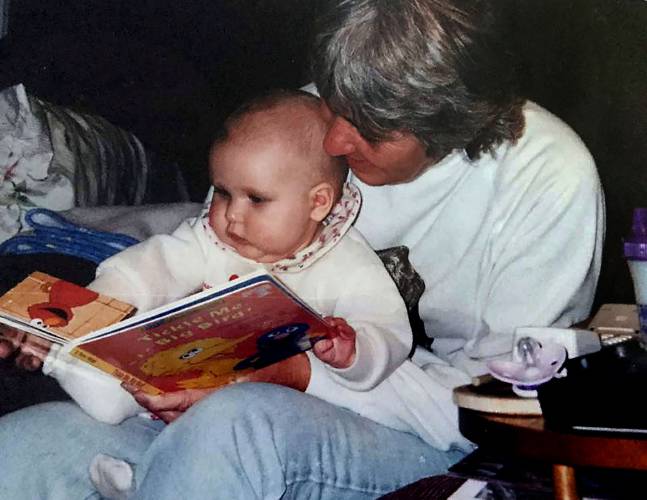
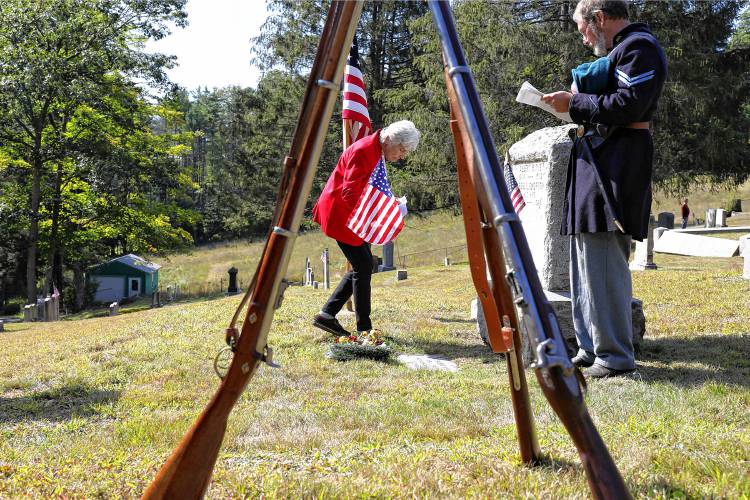
 JAG Productions announces closure, citing ‘crisis facing the arts’
JAG Productions announces closure, citing ‘crisis facing the arts’
